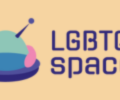Autistic Pride Day is on July 18th, exactly 10 days before LGBTQ+ Pride Day. Although this is a coincidence, it also makes a lot of sense.
Here’s our thanks to the folks at Shorties for helping make and revise this text!
Autistic people often have a different perspective on things, one of them being social labels. That’s why when we’re talking about the autistic community and the LGBTQ+ community, it’s not hard to notice that autistic people are more likely to identify as someone whose gender identity and orientation don’t align with the social norm.
The hardships that people who are in both these communities face, however, do multiply. Being autistic and LGBTQ+ means having your identity constantly questioned, invalidated and denied, including by mental health professionals who were supposed to be supportive. It’s not a coincidence that depression and suicide rates are 3 times higher in both of these populations in comparison to the average population.
Many misconceptions about neurodivergent individuals lead to difficulties in understanding and accepting that people with disabilities have the right to express their gender and sexuality, one of such ableist misconceptions being the infantilization of PWD. The implication that autistic people can’t identify as LGBTQ+ is a great example of ableism mashed together with LGBTQ+phobic ideas.
Studies have shown that there’s a significant percentage of LGBTQ+ people in the autistic community, but there’s still too little research and discussion on the matter. Some data even suggests that the percentage of trans individuals amongst the autistic population is about 10 times higher in comparison to the allistic (non-autistic) population.
One thing is for sure: LGBT autistics do exist, are here and have all the rights to be, speak and feel. And that is a beautiful thing.




